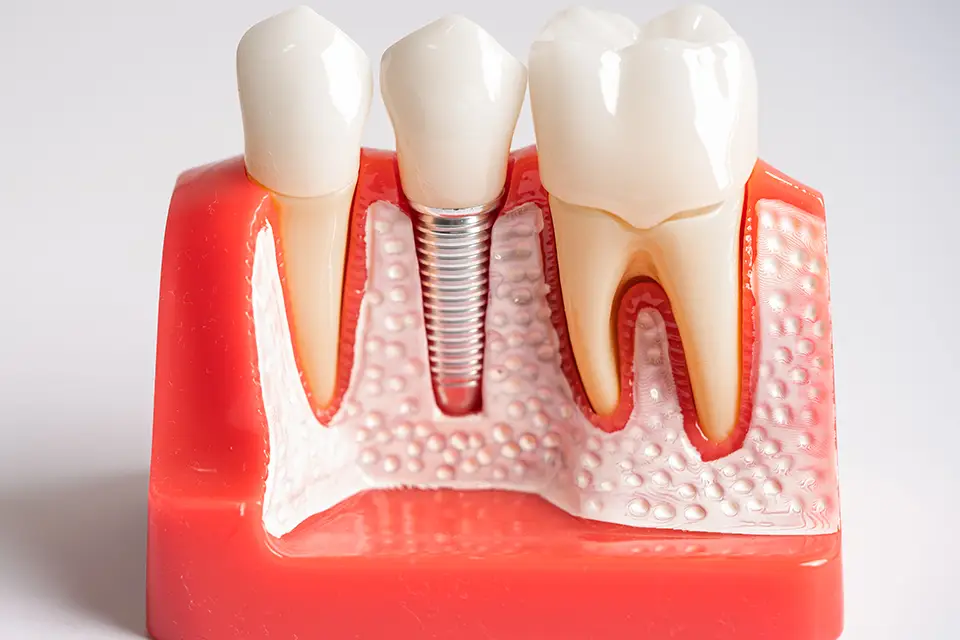Ever get that sharp, sudden zing of pain when you enjoy a scoop of ice cream or a sip of a cold drink? Or maybe it’s a hot coffee that makes you wince. This fleeting but intense discomfort is known as tooth sensitivity, and it’s one of the most common complaints we hear from our patients here at Sunshine Dentistry in Richmond Hill.
While it’s common, it’s not something you should ignore. Think of tooth sensitivity as a warning light on your car’s dashboard—it’s a signal from your body that something isn’t quite right. The good news is that in most cases, it’s highly treatable. This guide will help you understand the causes of your discomfort and know when it’s time to see us.
Understanding the Causes of Tooth Sensitivity
To understand why you’re feeling this pain, it helps to know a little about your tooth’s structure. The visible part of your tooth is covered in a hard, protective shell called enamel. Underneath that is a softer, more porous layer called dentin, which is full of microscopic tubules that lead directly to the tooth’s nerve.
When your enamel is worn down or your gum line recedes, this dentin layer becomes exposed. The pain you feel is the result of hot, cold, acidic, or sweet stimuli traveling through those tiny tubules and hitting the nerve. The core reason for most tooth sensitivity is this exposure of the dentin layer.
Common Reasons for Tooth Sensitivity
So, what causes that protective enamel or gum layer to be compromised in the first place? There are several common culprits behind persistent tooth sensitivity.
- Gum Recession: This is a leading cause. When your gums pull away from your teeth, they leave the root surface (which isn’t covered by enamel) exposed. This can be caused by aggressive brushing, gum disease, or even genetics.
- Enamel Erosion: A diet high in acidic foods and drinks (like citrus, soda, and wine) can slowly dissolve your tooth enamel over time.
- Teeth Grinding (Bruxism): The constant pressure from grinding your teeth, especially at night, can wear down your enamel.
- A Cracked Tooth or Leaky Filling: A crack or a failing dental restoration can create a direct pathway to the sensitive inner layers of your tooth.
- Recent Dental Work: It’s normal to experience some temporary tooth sensitivity after a procedure like a filling, crown, or teeth whitening. This usually subsides on its own.

How to Treat Tooth Sensitivity at Home and When to See a Dentist
When you first notice sensitivity, there are a few things you can try at home to manage the symptoms. These can be very effective for mild cases.
- Use a Desensitizing Toothpaste: These toothpastes work by blocking those tiny tubules in the dentin, which helps to stop the pain signals.
- Switch to a Soft-Bristled Toothbrush: If you’re using a medium or hard brush, you could be contributing to gum recession. A soft brush is always the best choice.
- Be Mindful of Your Diet: Limiting acidic foods and drinks can make a big difference.
However, if your tooth sensitivity persists for more than a week or two, it’s time to see us. At-home remedies can mask the symptoms, but they can’t fix the underlying cause. We can offer professional solutions like fluoride varnishes, dental bonding to cover exposed roots, or gum grafting for severe recession.
When to See Your Dentist
While most cases are easy to manage, tooth sensitivity can sometimes signal a more urgent problem that needs immediate attention. Please call our Richmond Hill office if you experience any of the following:
- Pain That Lingers: If the sensitivity from hot or cold lasts for more than 30 seconds after the stimulus is gone, it could indicate an issue with the tooth’s nerve.
- Sharp Pain When Biting Down: This can be a sign of a cracked tooth or advanced decay.
- A Visible Hole, Pit, or Dark Spot: This is a clear indication of a cavity that needs to be addressed.
- Swelling or a “Pimple” on Your Gums: This is often a sign of an infection or abscess at the root of the tooth.
These symptoms suggest that the problem goes beyond simple tooth sensitivity and requires a prompt professional diagnosis.

Conclusion: Regain Comfort and Confidence
You shouldn’t have to think twice before enjoying a cold drink on a warm day or a hot cup of tea in the morning. Persistent tooth sensitivity is a treatable condition, and our team at Sunshine Dentistry in Richmond Hill, Ontario, is here to help you find a lasting solution. By identifying the root cause, we can create a personalized plan to get your smile feeling healthy, strong, and comfortable again.
Ready to get to the bottom of your tooth sensitivity? Contact our Richmond Hill office today to schedule a consultation.
Frequently Asked Questions (FAQs)
1. Can tooth sensitivity go away on its own?
If it’s from a recent dental procedure, it often subsides within a few days or weeks. However, if it’s caused by an ongoing issue like gum recession or enamel erosion, it will not go away without treatment.
2. Will teeth whitening make my sensitivity worse?
Yes, it is very likely. The agents used in whitening products are known to cause temporary sensitivity. If you already have tooth sensitivity, you should always consult with us before attempting to whiten your teeth.
3. What's the difference between tooth sensitivity and a regular toothache?
Generally, something like hot, cold, or sweet stimuli triggers a sharp, temporary pain known as tooth sensitivity. A toothache, on the other hand, can be a constant, throbbing pain that occurs without a specific trigger.



